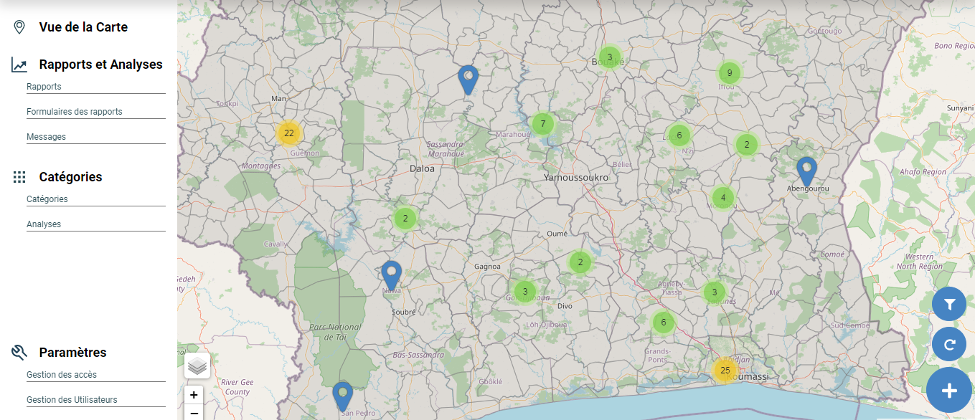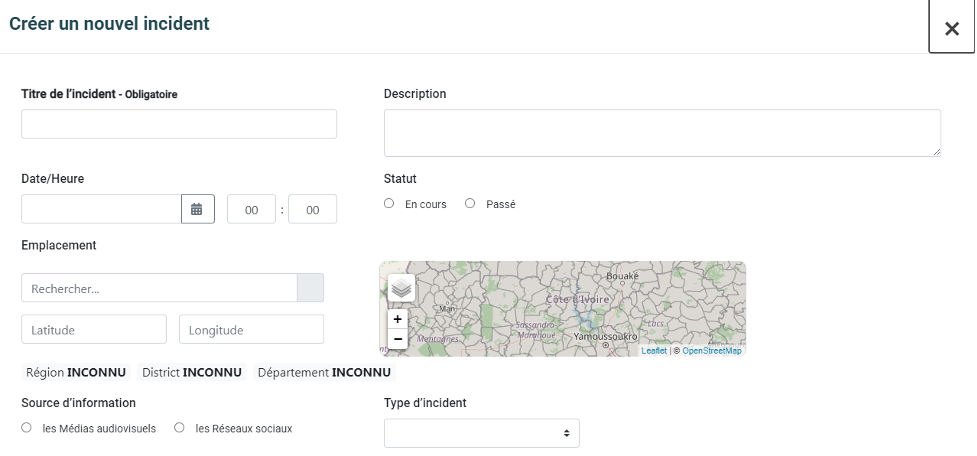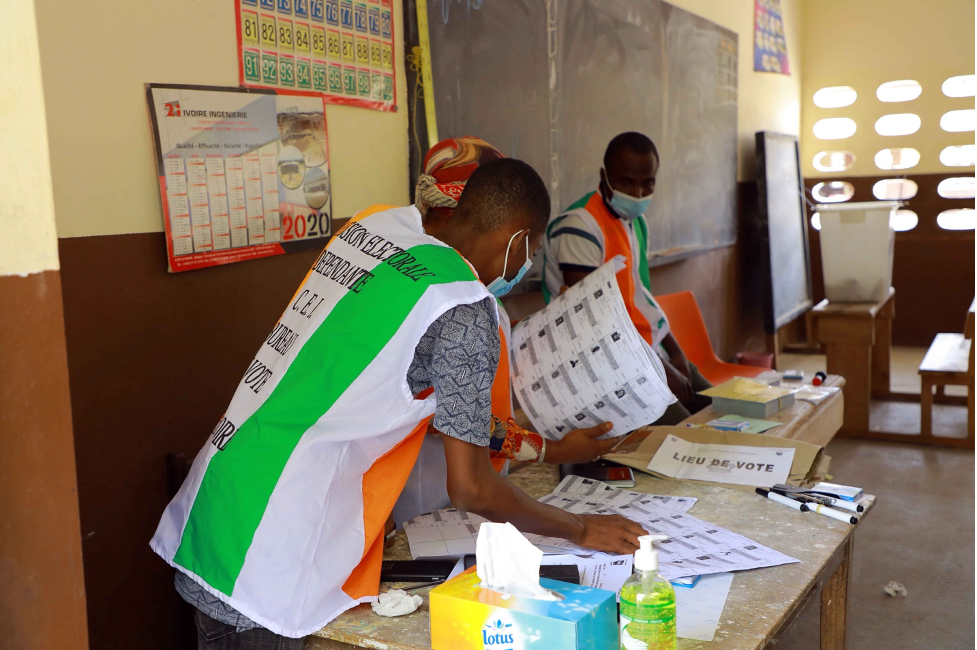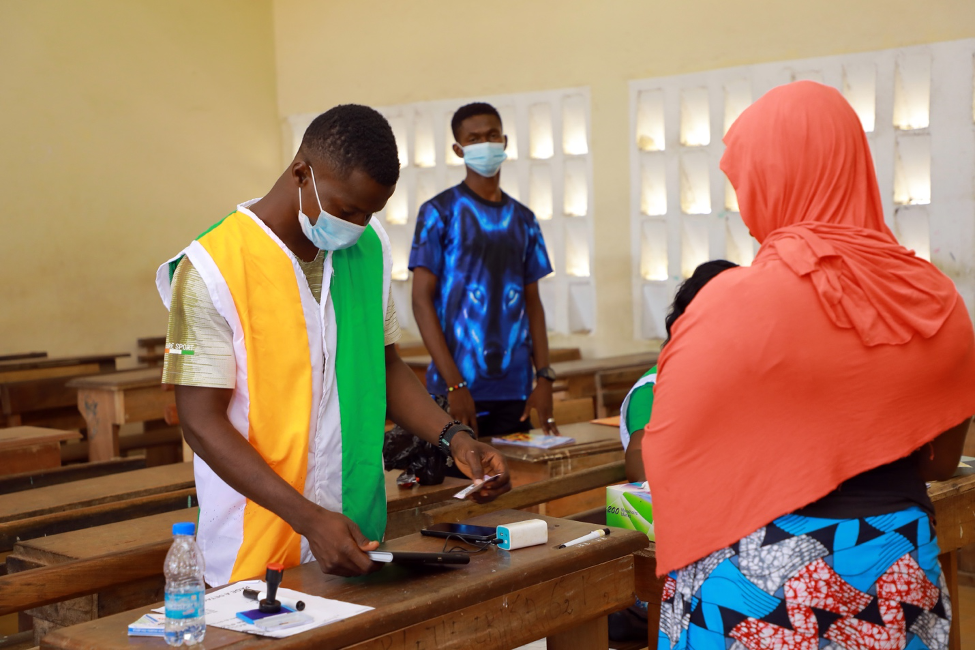EC-UNDP joint task force on electoral assistance for Ivorian and other elections
The European Union (EU) and the United Nations Development Programme (UNDP), through the EC-UNDP Joint Task Force on Electoral Assistance, have partnered in more than 50 countries and nearly 200 electoral projects to provide technical assistance in the field of elections based on national requests. They strive to provide effective and sustainable support to establish and reinforce democratic institutions and processes world-wide.
The Joint Task Force contracted UNICC to assist in the development of an Early Warning and Early Response web platform and mobile app to allow relevant national authorities to report risks and incidents of electoral violence and allow for prompt and coordinated national responses.
The platform has been utilized in the recent Côte d’Ivoire elections and ongoing planning to implement the project in Ethiopia and Zambia in 2021 are currently on the way. The Early Warning and Early Response solution is a prime example of how digital technology can help to promote Peace, Justice and Strong Institutions (Sustainable Development Goal 16).
The platform and mobile app
The platform was developed to ensure it could be used in a variety of humanitarian contexts, from elections to human rights violations monitoring to other incident tracking and reporting. The event monitoring app gives early indicators of risks and incidents that national actors and their teams on the ground can take in hand immediately.
The request originated from the Brussels-based UNDP Electoral Team, which was looking to develop an online Early Warning and Early Response platform that could help national institutions prevent and respond to electoral violence in real time.
The Early Warning and Early Response platform has been integrated into the Early Warning Systems, deployed by the Independent Electoral Commission (CEI) and the National Council of Human Rights (CNDH) of Cote d’Ivoire. The purpose of the platform is to provide an innovative digital tool for national institutions to anticipate and monitor risks and incidents of electoral violence to ultimately allow for well-informed and evidence-based responses.

During the second half of October, UNICC worked with the UNDP Electoral project in Cote d’Ivoire to provide an Early Warning and Early Response platform to National authorities of Cote d’Ivoire in time for the presidential elections.
The partnership with UNICC in the development and deployment of the EWER platforms in Côte d’Ivoire has been a successful first that has been praised for its utility by all national stakeholders involved in the electoral process. Having proved their worth in Ivory Coast, the EWER platforms will now be an important asset to be deployed in electoral projects worldwide.
United Nations Development Programme Electoral Team
A handy mobile app allows electoral commission members to readily monitor in the field and on the go: national authorities team members located in the field across Côte d’Ivoire could easily report risks and incidents of electoral violence back to their central structures in Abidjan.
In the case of low-bandwidth and uneven internet connectivity, national authorities team members could transmit their reports through a call centre as well as an SMS gateway. These alternative means of transmission proved important in permitting all members in the field to report regardless of material or connectivity limitations.

The Independent Electoral Commission and National Council of Human Rights will continue to use the platform in 2021 during upcoming legislative elections.

Early warning and early response platform benefits
Prior to this solution, Electoral Commissions or other national users reporting was manual: a staff member would report an event, a central team of analysts would verify the data and the verified data would appear on a map. Analysts now can link multiple observations of a single event, respond to incidents and register their actions digitally in the platform.
The system also includes robust reporting and data analytics capabilities. It features a library that enables national organizations to work easily with huge amounts of data and to visualize them in multiple ways.
Users can create compelling charts and graphs out of the box, and they can generate reports and conduct audits for after-action reviews of events.
End users can customize the app to their specific needs and situations such as collecting images and video, geotagging events and noting actions taken. They can include diverse reporting form features, from checkboxes to category color coding, and they can choose the granularity of data displayed publicly or privately in the mapping tool.
In the future, the system could automate reporting, pulling and aggregating a large volume of disparate data from a variety of inputs – text messages, emails, social media and other channels.
UNICC’s event monitoring and reporting solution is ideal for crowdsource event data, track and report on proceedings, respond quickly to developing situations on the ground or conduct after-action reviews and capture lessons learned.
Read more

